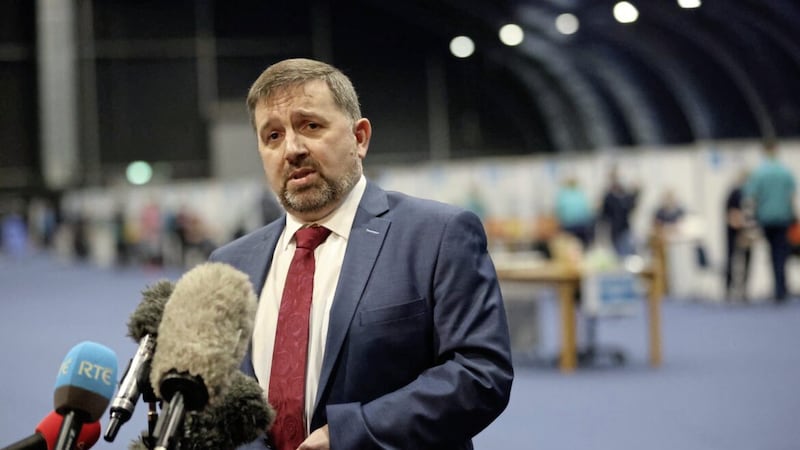The shameful and sometimes tragic collapse of our health system is increasingly burdened by a new and insidious disease. It is called popular political opinion.
The main symptom of this rapidly spreading infection is the belief that if Stormont were “up and running” (even though it has always dragged its feet rather than run) then our NHS would arise, Lazarus-like, from its present state of affliction.
It is a futile opinion, because Stormont is not the solution to the health service problem. Stormont is the problem.
Like all medical conditions, the diagnosis lies in the evidence. If we examine only one waiting list (and there are dozens) we find that in 2009 there were 69,000 patients waiting for a first consultant-led outpatient appointment. Today there are 363,000.
In those 13 years we voted 19 times: Assembly (4), Westminster (4), local government (3), EU (3), Westminster by-elections (3), referendums (2). The more we voted, the more the waiting lists grew.
Over the period of just the four Stormont elections, the list grew by 294,000, which means it increased by 73,500 for each election. (Warning: voting can damage your health.)
Before Covid, in 2019, only 1,400 people were waiting for their first consultant-led outpatient treatment in England (population 55 million). Here in the north (population under 2 million) 108,582 people were waiting.
It was not a matter of money. While we spent £2,500 per head on healthcare in 2019/20, England only spent £2,300.
Maybe, you suggest, we need a comprehensive review of the health system. However, we have already indulged in seven substantial reviews in the past 20 years. Reviews are merely occupational therapy.
In view of this evidence, it appears that health is not important to Stormont’s two leading parties, Sinn Féin and the DUP. By prioritising sectarian rivalry over social progress, they have amassed major problems not only in health, but in social care, welfare, education, economy and infrastructure. Both parties have collapsed Stormont in recent years, despite the human suffering of those who elected them and both refused the health ministry when Stormont reconvened in 2020.
During Covid, SF and the DUP selectively opposed health minister Robin Swann’s policies. When he proposed bringing in 100 medically trained military personnel, Sinn Féin hoped that the military would not “get in the way of the professionals”. (They were presumably suggesting we should die for Ireland, while they greet the army’s commander in chief, the Queen.)
The DUP used a petition of concern to block Mr Swann’s proposal in 2020 to extend the lockdown by two weeks to protect public health. Professor John Appleby of the Nuffield Trust has said that it is “impossible” to believe lives have not been lost due to long waiting lists. We know how many died in our sectarian war, but we are unsure of how many have subsequently died because of our sectarian politics.
This policy of neglect has generated, or at least been accompanied by, widespread nationalist support. Sinn Féin’s percentage share of the assembly election vote has risen alongside the growing waiting lists, which reflects the party’s ability to distance its powers from its responsibilities. The DUP is less skilled at public relations. Its vote fell.
In view of the parties’ neglect of health policy, we might reasonably ask how many MLAs are currently on a waiting list or how many of them have private health insurance. They might like to volunteer an answer.
Whether they do or not, perhaps every candidate in the next assembly election should clarify those two points.
So if restoring Stormont is not the solution, what is? The answer is to get Robin Swann “up and running” on his own, through emergency legislation at Westminster, to tackle what has become a humanitarian crisis. He has been a health minister first and a politician second.
He has made mistakes and he will make more, but genuine errors are acceptable. Cynical neglect is not. Restoring Stormont will solve neither the cynicism nor the neglect.









